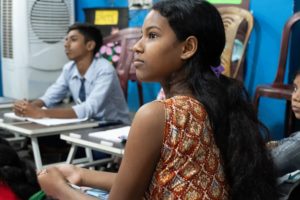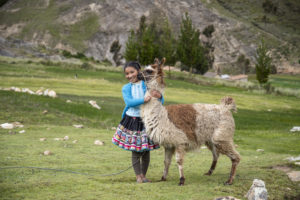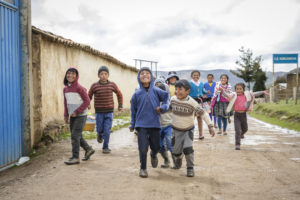In India, more than one in six children work instead of going to school!
In disadvantaged areas of Calcutta, many children will never go to school or they will attend it up to the last year, which prevents them from accessing professional training.
While the Indian government claims there are 11.2 million working children, NGOs estimate that they are close to a 100 million, the highest count in the world, more than one in six children. Due to poverty, their parents are forced to send them to work. Girls are even less educated than boys. In the slums of Calcutta, living conditions resemble survival: the unemployment rate is very high, the sanitary conditions are deplorable and eviction is always a risk. Children in these slums need support to go to school.
The action of Terre des Hommes Switzerland
This innovative project aims to prevent the complete abandonment of the school system for two categories of children: those who have recently dropped out of school and those who risk dropping out of school. Access to basic education is paramount in neighborhoods where the illiteracy rate is very high. These children represent the first generation that has access to education; they need support!
After discussions with communities, children and their parents, the local partner of Terre des Hommes Switzerland, the Society for People’s Awareness (Span) , offers two types of support: open schools for those who have already left school and some sort of remote courses with exams that allow the children to catch up.These courses are approved by the Indian Ministry of Education. Specific support courses are also given by repeaters, in different disciplines, each afternoon in the children’s quarters. These courses are given to small groups of 12 to 15 children in 5 centers. On the other hand, alternative vocational trainings – electricity, telephone repair, sewing – are offered in the form of preparatory courses which take place on weekends and aim to stimulate children by showing them trades that require training, hence the value of completing compulsory schooling. The activities are supervised by two education advisers who follow each young person until his/her acceptance in the professional training provided by a polytechnic institute. Span also offers two training courses (beautician and nursing assistant) to encourage girls’ education.





